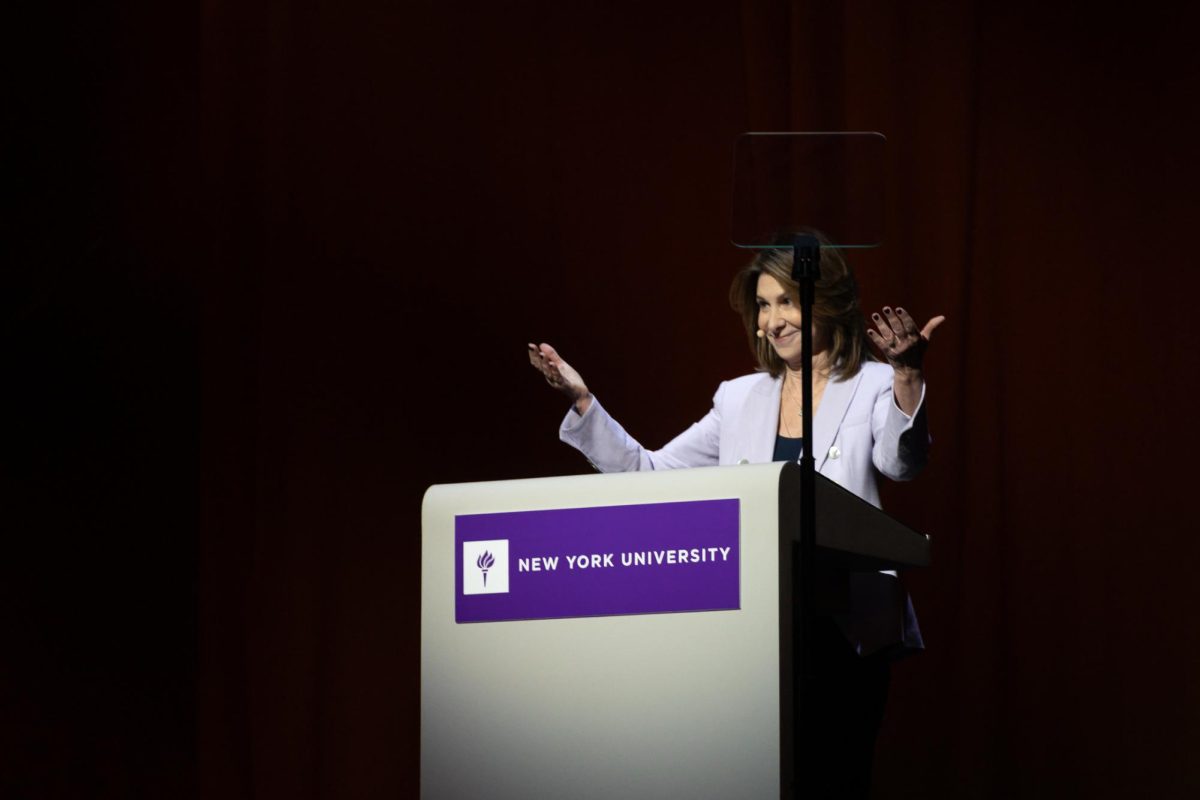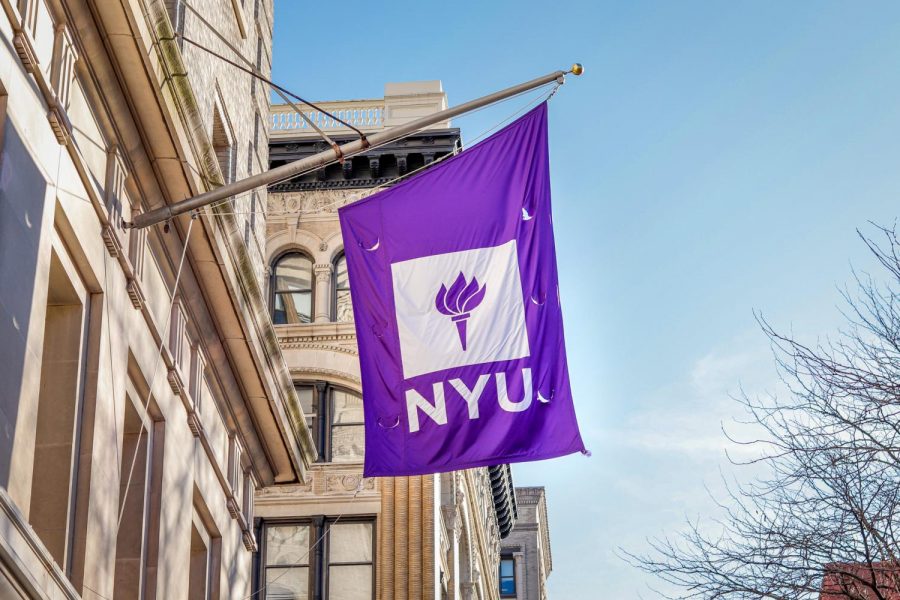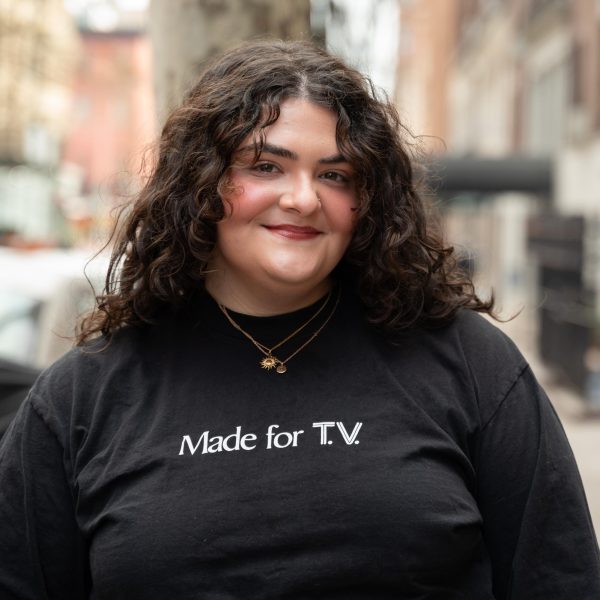Actor Ben Wang is living every kid’s dream. Since graduating from Tisch School of the Arts in 2020, his career exploded. He’s starred alongside Hollywood legends like Michelle Yeoh and Ke Huy Quan in Disney+’s “American Born Chinese,” and is now assuming one of the biggest action roles in the cultural zeitgeist: a Karate Kid.
“It’s a wildest dream scenario,” Wang said in an interview with WSN. “I feel like if you asked a 7-year-old what they think being an actor is. Like, ‘Oh, I don’t know. I wake up and go do kung fu with Jackie Chan.’”
In many ways, Wang is the perfect Karate Kid, not just because he took martial arts classes when he was younger. He grew up in Northfield, Minnesota, after immigrating from Shanghai — a very similar experience to his “Karate Kid: Legends” character Li Fong, a Chinese immigrant in New York City. And just like every installment of the series, it took mentorship and encouragement from his teachers to spot star potential in him.
“I applied to a lot of schools, but I didn’t apply to that many drama schools,” Wang said. “I didn’t think I would be able to get into any of them … Going to NYU was an opportunity that I didn’t really think I was going to be able to have right up until I got the letter that said I could.”
Ahead of the May 30 theatrical release of “Karate Kid: Legends,” WSN spoke with Wang about how he made the jump from NYU to becoming an action star, the pressures that come with starring in an iconic film franchise and providing positive Asian representation to an American audience.
This interview has been edited for length and clarity.
WSN: What drew you to NYU, and what impact has your time here made on your acting career?
Wang: What drew me to NYU was that it wasn’t a small town in Minnesota. Not that I dislike my town — I love it here. But when I was 18, I’d lived here for long enough that I wanted to try something that was the exact opposite … My mom was very supportive, but she was like, ‘I’m not flying you to New York to audition for drama school.’ I had to scrap together money from my sushi parlor job, and I flew myself out.
One of the most important things in my life that I attribute to getting me this far is the luck I had in meeting good teachers, especially the ones that believed in me, even before I believed in me. A lot of those teachers I met at NYU. Barbara Tirrell was the earliest teacher — she took me aside one day after a scene, and she was like, ‘You have what it takes to be a leading man.’ I didn’t believe her when she said it at the time, but she was right, empirically.
WSN: Did you grow up with the ‘Karate Kid’ franchise? What was it like finding out you were going to be part of the next installation?
Wang: Leading a new iteration of a beloved franchise is really nerve-wracking. People love this stuff, including me. I understand I would be really skeptical and watch whoever’s doing this really closely. There’s a lot of pressure, and that’s incentive to work as hard as I can and do my best to put those people at ease that I was the right man for the job.
WSN: You performed most of your own stunts for the film. What made you decide to do so, and what was the training process like, physically and mentally?
Wang: I can’t speak for every actor, but I feel like most actors want to do as much as they can, so I always petition [for it]. Director [Jonathan Entwistle] was really keen on making something that harkened back to those old Hong Kong action movies, and part of the excitement of those is that you knew those guys were really fighting.
We had a really incredible stunt team and really incredible stunt actors, coordinators, choreographers and doubles. I did most of my stunts, but I by no means did all of them. There’s some really crazy, insane stuff in there that only takes people who have dedicated their lives to doing that sort of thing. I’m really happy to say that we got some of the best in the business.
WSN: As someone who immigrated from Shanghai at a young age, what is that experience like having parts of your life reflected in these roles and bringing Chinese language and culture to American audiences?
Wang: It’s a great privilege, and I’m very lucky to be working in a time where the people who make these things have an imagination that’s big enough to allow these characters to exist, because that didn’t used to be the case. It’s a fairly new thing that we’re seeing these specific stories told in big, mainstream blockbuster settings. It feels fresh in a way — you don’t get very many movies about a Chinese kid who moves from Beijing to New York and has to fight in a karate tournament. I worked really hard on set to preserve a lot of the cultural elements. There’s a lot of people like me in the world, and it’s going to be meaningful for them to see their own experiences reflected on screen in a story that feels outside of what they’re used to.
WSN: What advice would you give to aspiring artists or students who may not think Hollywood is in the cards for them?
Wang: Just do it. It’s a freaking Nike logo, so it’s hard to say it with a straight face, but it’s true. You got to just do it, and you can’t be afraid to be bad, because you are going to be bad. Even the people who were child geniuses were bad when they started. They didn’t plop Mozart down at a piano at three months old and have him start playing real good. He was bad, at least for a little bit. You can’t let being bad be a deterrence to starting, because that’s part of the journey to becoming good.
Contact Dani Biondi at [email protected].
























































































































































